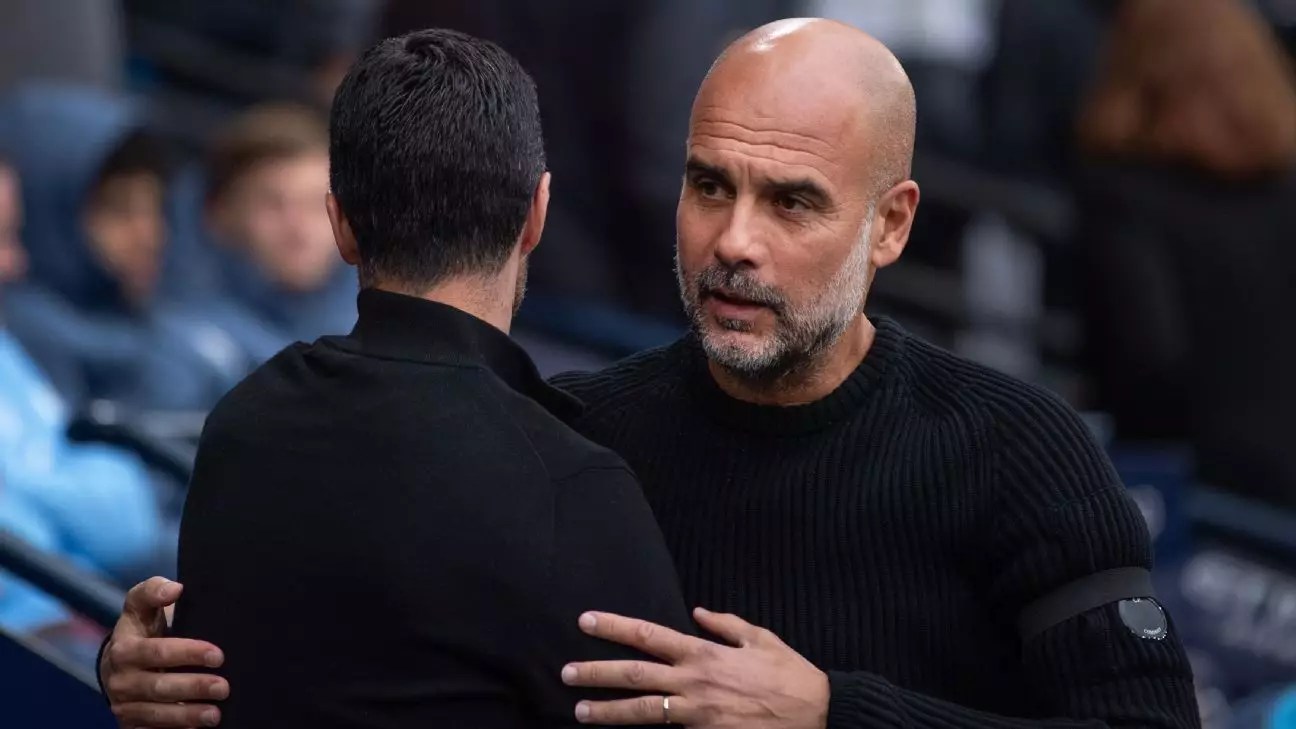In the world of Premier League football, rivalries are as intense as the matches themselves. This was recently exemplified in a verbal exchange between Pep Guardiola and Mikel Arteta. Following a high-stakes 2-2 draw between Manchester City and Arsenal, Arteta made some provocative remarks suggesting that his former mentor, Guardiola, possesses confidential insights into his current team. This assertion comes on the heels of City players expressing their grievances regarding Arsenal’s utilization of controversial tactics during the match. Arteta’s cryptic comment—”I was there for four years. I have all the information, believe me”—sparked further dialogue about the implications of his tenure at City and the strategies employed by both sides.
Guardiola’s reaction to Arteta’s insinuations was pointed. He urged Arteta to clarify his remarks, suggesting that ambiguity could lead to misunderstandings in their growing rivalry. “Did he say that?” Guardiola questioned, indicating that he found Arteta’s comments less than transparent. He continued to elaborate that if Arteta possesses knowledge of their tactics and strategies—possibly relating to the ongoing scrutiny City faces due to numerous charges—it would be beneficial for him to elucidate these claims.
Guardiola’s comments reflect not only his irritation but also a sense of protectiveness over his team’s integrity. He suggested that Arteta’s remarks could potentially expose deeper tensions linked with City’s ongoing challenges off the pitch. As rival managers, both men are under immense pressure to deliver results, which can lead to strained relationships, even between former colleagues.
The Manchester City versus Arsenal rivalry has intensified over the last few seasons, with both clubs vying for supremacy in the Premier League. This competitive atmosphere can often lead to contentious moments during matches, as seen when Erling Haaland was captured throwing the ball at Gabriel’s head following John Stones’ late equalizer. Such incidents are emblematic of the heated nature of these encounters, raising questions about sportsmanship and tactics employed by both sides.
Guardiola acknowledged this intensity, describing the situation on the pitch as a “war.” He noted that emotions can run high, and players can be pushed to provoke one another. It highlights how football is not just a physical battle but also a psychological one, where mind games and mental resilience play a crucial role. While both coaches strive to maintain professionalism, the stakes in these encounters blur the lines of decorum.
As the rivalry evolves, it becomes clear that the interactions between Guardiola and Arteta are just as significant as the outcomes of their matches. Their verbal clashes reflect the broader narrative of competitive football, where personal pride and tactical strategies collide. Both managers carry the burden of expectations from their clubs and supporters, leading to a dynamic often marked by suspicion and rivalry.
The current state of affairs between Guardiola and Arteta serves as a reminder that in the world of high-level football, the boundaries between personal relationships and professional rivalries can often become blurred. As both coaches continue to navigate their paths, fans of the sport will undoubtedly witness more compelling exchanges and thrilling matchups that capture the essence of what it means to compete at the highest level. The drama is far from over, and the next chapters in this rivalry are sure to be unforgettable.


Leave a Reply